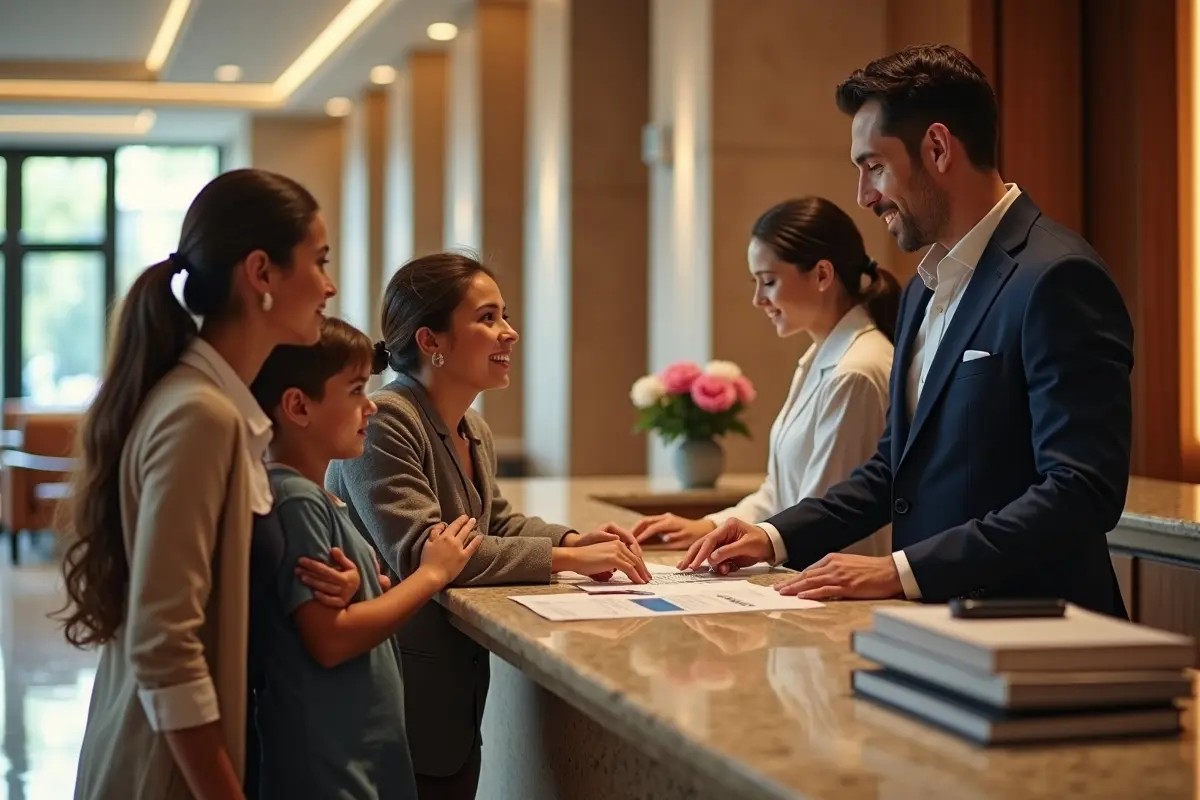Achieving consistent revenue growth in the hospitality industry requires a strategic balance between pricing, demand forecasting, and guest satisfaction. With travelers’ preferences shifting rapidly and market competition intensifying, hotels must adopt smarter, data-driven approaches to stay ahead of the curve.
This involves not only understanding seasonal trends and customer behavior but also creating flexible pricing models that respond in real-time to changing conditions. Strategic revenue management enables hotels to optimize occupancy, minimize revenue leaks, and align pricing with their overall business objectives.
Technology now plays a central role in how hotels make informed decisions and adapt to fluctuating markets. Leveraging modern solutions, such as hotel dynamic pricing software from Revenue Analytics, can provide a decisive advantage in maximizing revenue opportunities, forecasting demand, and elevating guest experiences to new heights.
Such tools enable hoteliers to move beyond static pricing, using analytics to identify optimal rates that reflect both market demand and customer value—ensuring profitability and sustained growth in an ever-evolving hospitality landscape.
AI-Powered Demand Forecasting
The rise of Artificial Intelligence (AI) has transformed revenue management in the hotel industry, fundamentally improving how hotels forecast and plan for occupancy. AI-powered systems analyze vast amounts of historical booking data, real-time market trends, upcoming events, and competitor rates, allowing them to generate highly accurate occupancy forecasts.
These granular predictions empower hoteliers to fine-tune not only pricing strategies but also decisions around staffing, inventory, and special promotions, allowing for precise alignment with anticipated peaks and dips in demand.
As a result, hotels that leverage AI-driven forecasting tools often report measurable revenue increases and operational savings. Accurately forecasting demand reduces wasted resources, minimizes last-minute rate slashing, and drives higher profitability throughout the year, including shoulder and off-peak seasons.
Dynamic Pricing Models
Dynamic pricing is a crucial foundation for maintaining competitive room rates and maximizing revenue, enabling hotels to respond instantly to changing market conditions. This strategy involves leveraging real-time data feeds about market demand, ongoing competitor activity, weather, and local events to adjust prices with agility.
During high-demand periods, such as holidays or local conventions, hotels can strategically increase rates to reflect scarcity. Conversely, during slower periods, strategically crafted offers and reduced rates can attract value-minded guests and maintain high occupancy.
Sophisticated pricing engines, including hotel dynamic pricing software platforms, automate much of the heavy lifting by collecting, analyzing, and recommending optimal price adjustments multiple times a day. This level of automation and accuracy is vital for hotels that want to compete effectively and maintain rate integrity while avoiding damaging price wars or excessive discounting.
Enhancing Guest Experiences Through Personalization and Upselling
Personalization is vital for increasing guest satisfaction and revenue. By analyzing guest data, hotels can tailor experiences to include preferred floors, pillows, dietary preferences, and activity suggestions. These unique touches create lasting memories and foster brand loyalty.
Personalized offers for upgrades, spa treatments, or local activities significantly boost spending. Providing tailored upsell recommendations during booking or check-in increases revenue and makes guests feel valued, encouraging repeat business and positive reviews.
Leveraging Digital Marketing and Direct Bookings
Hotels aiming for higher profits are gradually cutting back on third-party OTA dependence. Instead, they focus on digital marketing strategies, including SEO, paid advertising, social media, and targeted email campaigns.
These methods enhance direct customer interactions, highlight exclusive offers, and encourage bookings without paying OTA commissions. Additional tactics, such as retargeted ads and personalized landing pages, help increase conversion rates. Overall, digital marketing is essential for hotels to stay visible and competitive in the online market.
Adopting Sustainable Practices
Sustainability is more than just a passing trend; it has become an essential aspect of both long-term hotel profitability and brand value. Implementing environmentally responsible programs—such as waste reduction, energy and water conservation measures, and offering locally sourced amenities—appeals strongly to a growing segment of eco-conscious travelers. These sustainable practices not only yield tangible operational cost savings through reduced consumption and waste but also create significant differentiation in marketing messaging.
Highlighting green initiatives in digital campaigns and guest communications can significantly enhance a hotel’s image, enabling it to attract new audience segments who prioritize responsible tourism and are willing to pay a premium for it. More hotels are even achieving certifications for their commitment to the environment, further reinforcing guest trust and brand loyalty.
Utilizing Technology for Operational Efficiency
Modern hotel operations are increasingly reliant on technology to streamline processes and reduce inefficiency. Advanced integrated property management systems (PMS), revenue management systems (RMS), and guest service platforms bring valuable automation to tasks such as reservation handling, check-ins, housekeeping schedules, and payment processing.
The adoption of these systems accelerates staff workflows, reduces the risk of human error, and enables faster response times, ultimately enhancing guest service and operational agility. These technologies also provide hoteliers with actionable business intelligence—insights into booking trends, guest preferences, and financial performance—which empowers managers to make more informed strategic decisions and react proactively to shifting market conditions while keeping operational costs under control.
Forming Strategic Partnerships
Collaboration with local businesses has become a powerful way for hotels to diversify revenue streams and offer truly memorable experiences to their guests. Strategic alliances with city tour operators, local restaurants, artisanal producers, wellness providers, or event venues can unlock the ability to create tailored packages and value-add promotions.
Not only do these partnerships enrich the guest experience and make it more immersive, but they also provide exposure to new markets and opportunities for joint promotions. Integrating local culture and unique offerings into the hotel stay strengthens the emotional connection between the guest and the destination, while driving new revenues for both the hotel and its partners. Furthermore, fostering positive relationships within the community enhances a hotel’s reputation and opens doors for collaborative initiatives that benefit all parties.
Continuous Staff Training and Development
The successful implementation of advanced revenue strategies largely depends on having an engaged, knowledgeable, and motivated staff. Continuous staff development through training in sales, upselling, guest service, and the use of hotel technology ensures employees understand not only the property’s value proposition but also how to translate that into guest satisfaction and added revenue.
Regular upskilling enables staff to stay ahead of hospitality trends and evolving customer expectations. When employees are equipped with the tools and confidence to respond to guest needs, both service quality and guest spend rise. Effective training programs also foster greater morale and improve workforce retention rates, which is vital in an industry often challenged by high turnover.
Moving Forward: Building a Future-Ready Revenue Strategy
Embracing innovative revenue management strategies positions hotels for sustained success in a rapidly evolving landscape. By integrating innovative technologies, empowering staff, promoting sustainability, and enhancing direct guest engagement, hotels can consistently deliver outstanding value. These strategies enable properties to thrive under pressure, quickly adapt to changing guest expectations, and continue building a loyal customer base—delivering tangible rewards for both guests and the hotel’s bottom line.




